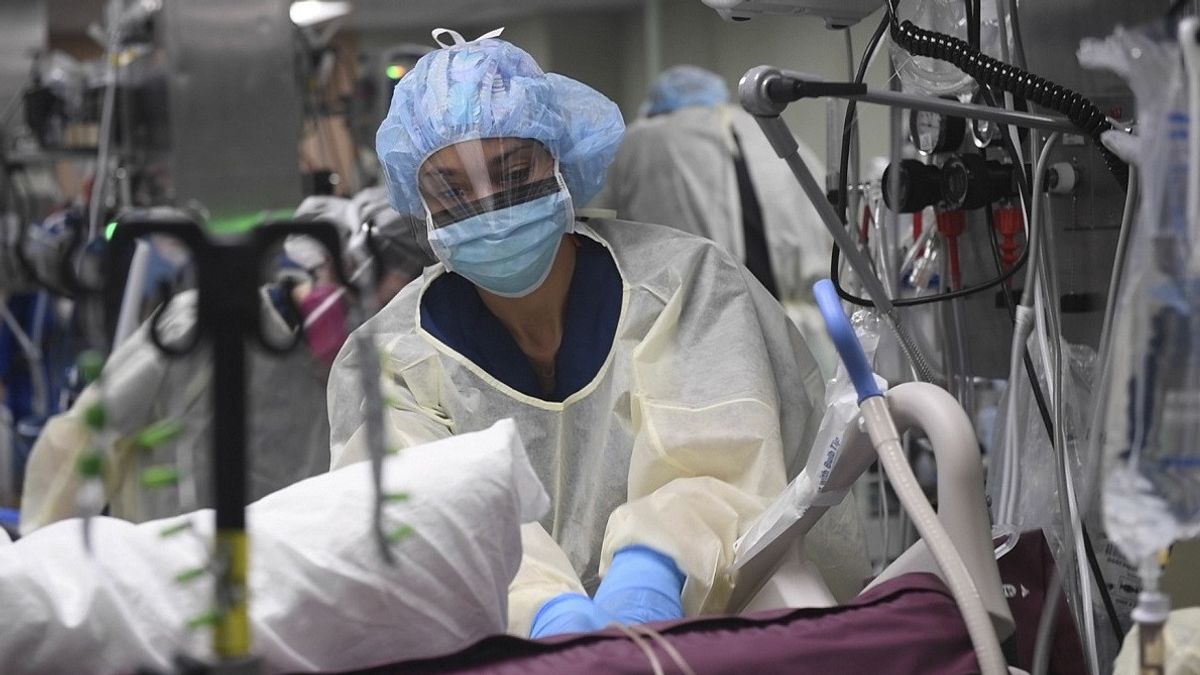JAKARTA - Worldwide COVID-19 infection cases neared 250 million on Sunday, as the spike from the Delta variant eased with more normal trade and tourism resuming, despite several countries in eastern Europe experiencing record outbreaks.
Over the past three months, the average daily number of cases has fallen by 36 percent, according to a Reuters analysis.
Despite the slowing spread, the virus still infects 50 million people every 90 days, because the Delta variant is highly contagious, analysis shows, with the first 50 million cases of COVID-19 being reached in almost a year.
Health experts are optimistic that many countries have forgotten the worst of the pandemic thanks to vaccines and natural exposure, although they warn colder weather and upcoming holiday gatherings could increase cases.
"We think between now and the end of 2022, this is the point where we get this virus under control, where we can significantly reduce severe illness and deaths," said Maria Van Kerkhove, an epidemiologist at the World Health Organization (WHO).
Besides vaccines, doctors now have better treatments. The UK on Thursday became the first country in the world to approve a potentially game-changing COVID-19 antiviral pill co-developed by Merck and Ridgeback Biotherapeutics called molnupiravir.
Studies show the drug can halve the chances of dying or being hospitalized for those most at risk of developing severe COVID-19 when given early in the illness.
However, infections are still rising in 55 of the 240 countries, with Russia, Ukraine, and Greece at or near record levels of reported cases since the pandemic began two years ago, according to a Reuters analysis.
Eastern Europe has the lowest COVID-19 vaccination rate in the region. More than half of all new infections reported worldwide come from countries in Europe, with one million new infections every four days, according to the analysis.
Several Russian regions said this week that they could impose additional restrictions or extend workplace closures to combat a spike in COVID-19 cases as the country records deaths from the disease.
Meanwhile, more than half the world's population has not received a single dose of the COVID-19 vaccine, according to Our World in Data, with less than 5 percent of people in low-income countries having received at least one dose.
The WHO and other aid groups last month called on leaders of the world's 20 largest economies (G20) to fund plans to bring COVID-19 vaccines, tests, and drugs to poor countries over the next 12 months for $23.4 billion.
SEE ALSO:
"Vaccine inequality remains the biggest barrier to achieving our coverage targets," PAHO Assistant Director Jarbas Barbosa, urging authorities to prioritize the elderly, frontline workers, and people with pre-existing conditions, to protect them from burdening the health care system.
The English, Chinese, Japanese, Arabic, and French versions are automatically generated by the AI. So there may still be inaccuracies in translating, please always see Indonesian as our main language. (system supported by DigitalSiber.id)


















